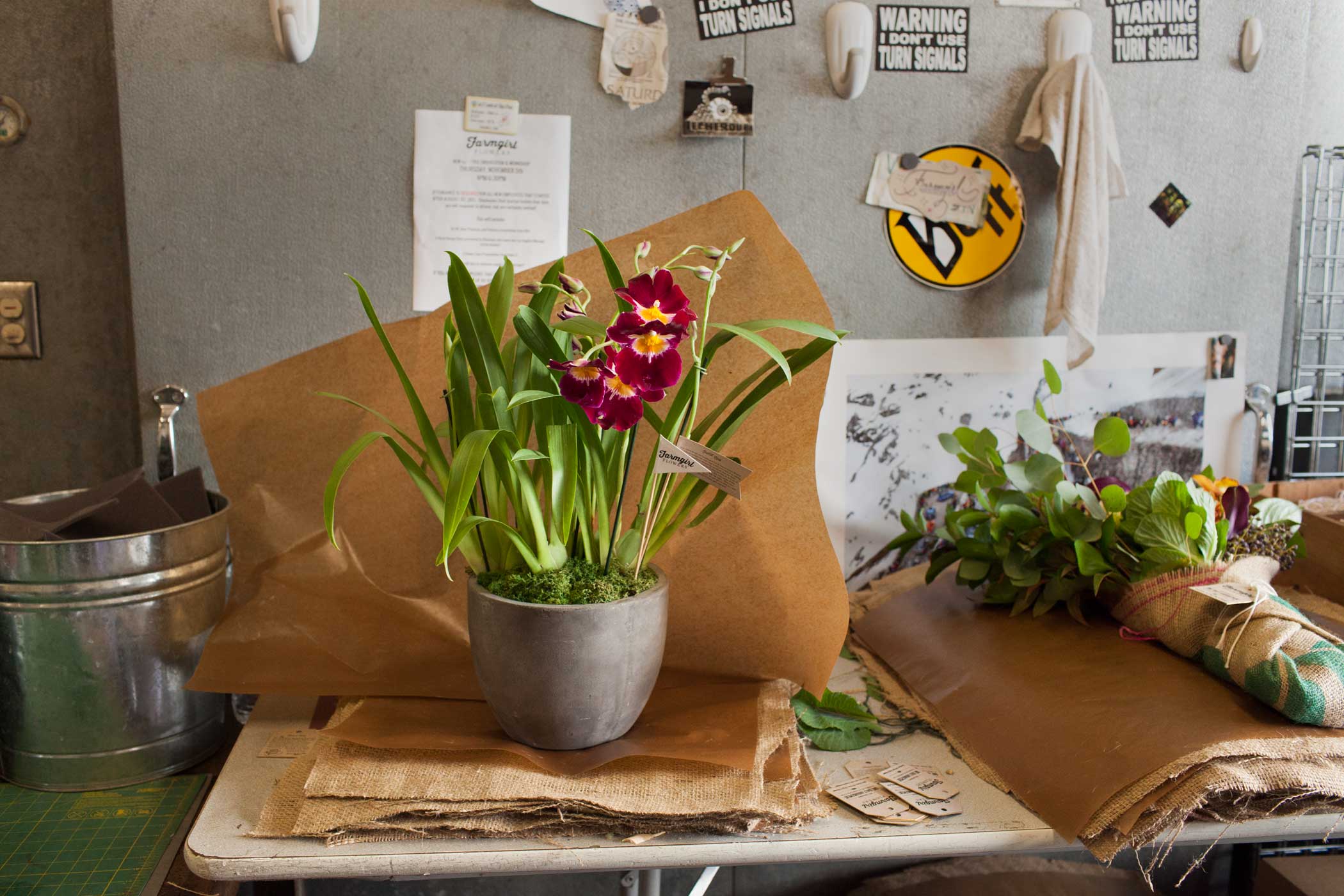
The floor of Christina Stembel’s war room is covered with stems and leaves, her soldiers armed with calla lilies and persimmons. As on any other weekday, the troops at Farmgirl Flowers are assembling hundreds of bouquets in San Francisco’s flower market that will soon be stacked in billowing Seuss-esque piles on the backs of bicycles and dispatched all over the Bay Area.
Along with several other startups in major metros around the country, Farmgirl Flowers is set on reinventing the roughly $10 billion business of buying flowers. “Everyone says the flower industry is a dying industry because flower shops don’t work with the overhead, and the flower companies don’t offer what people want,” says Stembel, the company’s sole founder. “I just saw this and thought this is absurd. How has nobody done anything in this industry?”
The conventional ways of doing business in the American flower industry are plagued with inefficiencies that make Silicon Valley disruptors slobber like hungry hounds. Most of the flowers arriving at desks and doorsteps in America are grown in the tropical highlands of South America — Colombia alone commands about 70% of the U.S. market. Those stems might change hands three or more times as they’re flown from Bogota to a broker in Miami, who ships them to a wholesaler in Denver, who sells them to a florist in Boulder, who hopes someone walks in and buys them. If they’re not kept near freezing during the trip, their quality drops.
“At each step along the way, you have waste environmentally and economically,” says John Tabis, a founder of Los Angeles flower startup The Bouqs Co. “You have a ton of waste.”
READ MORE: Buying Guide: There’s a New Way to Send Flowers This Valentine’s Day
That florist in Boulder or anywhere else is also combatting spoilage. Though the U.S. Department of Agriculture lacks statistics on how many flowers get thrown away because they don’t sell in time, startup founders like Steven Dyme, who runs Flowers for Dreams in Chicago, assert that florists might throw away as much as a third of what they need to stock in order to have all the popular blooms on hand. And that means higher prices for the flowers that do find homes.
“The reason those tulips have to cost $15 when it looks like $4 worth of tulips is because they have to subsidize the lilies that got thrown out,” says Stembel.
To each their own spin
A new wave of budding floral startups each have their own approach to the industry’s thorny problems.
Santa Monica-based BloomNation touts itself as an “Etsy for florists.” It has built an e-commerce marketplace for brick-and-mortar florists that are already in business, so an online shopper can easily see the different options available from florists in Chicago or Memphis without going to individual florists’ websites, if they even exist.
Co-founder Gregg Weisstein says BloomNation is cutting out middlemen like 1-800-Flowers, which are known as “wire services” in the industry. He says these companies might take half a customer’s money and wire out the other half to a local florist in their network, who is told to make something that resembles a picture from their catalog and deliver it in a day or two. BloomNation, which is on track to make about $45 million in annual revenue, instead takes about 10%.
San Francisco-based BloomThat, meanwhile, considers itself a technology company more than a flower firm. In true Silicon Valley style, co-founder Matthew Schwab says his business is primarily focused on eliminating friction by delivering a sleek mobile experience and trying to solve problems like getting a bouquet to someone if you don’t know their physical address. The company aims to make it so easy and affordable, Schwab says, that more buyers will simply make a thoughtful gesture more often.
“The flowers are secondary,” says BloomThat co-founder Matthew Schwab, whose company announced $5.5 million in funding this past summer. “BloomThat exists to connect people.”
Other companies, like The Bouqs Co., work directly with farms in places like Ecuador, where workers are trained and given the materials they need to send the flowers directly to the consumer, cutting out middle men. D.C.-based UrbanStems also keeps costs down by sourcing straight from farms—promising workers get fair wages and use sustainable practices— but delivers the goods itself, increasing transparency by having the delivery person send customers a photo of the bouquet outside the recipient’s home. Dyme’s startup, Flowers for Dreams, sources from local farms (as long as the weather allows) and partners with a Chicago-area charity each month, giving away a quarter of its profits. The business has worked with outfits like the Cook County jail, buying blooms that inmates grow as part of an agriculture-based rehabilitation program.
If these floral entrepreneurs have anything in common besides measuring things in “stems,” it’s contempt for the old ways of doing business. “The process sucks,” says Schwab, speaking of his experiences buying flowers before co-founding BloomThat in 2013. “Every time I send them, they’re ugly or they’re wrong or they’re different, and they’re never really a representation of who I am or what I want. And they’re expensive!”
From women, to women
Another thing most of these floral startups have in common is that they were founded by men. Farmgirl Flowers is the lone company in this cohort that was founded by a woman. And that may be a business advantage in an industry that caters largely to female consumers. Stembel says she fell into the same trap as many other founders in the beginning, thinking that it was men who do most of the flower-buying in America. While men do shell out for blooms on holidays like Valentine’s Day or Mother’s Day, they say, when the year is looked at as a whole, several of these startups say that more than 75% of their customers are female. On a daily basis, most flowers in the U.S. are being sent from women, to women.
Whatever benefit her gender might give her, Stembel believes it has also been a hurdle. Despite year-over-year growth and a loyal following, she says she has had trouble raising funds from rooms full of male venture capitalists. Fellow San Francisco-based competitor BloomThat, meanwhile, counts the likes of actor Ashton Kutcher among investors. Farmgirl Flowers (Stembel really did grow up on a farm in Indiana), founded in 2010 before going nationwide in 2015, has never had less than 240% growth year-over-year, she says. It would be profitable if Stembel wasn’t funneling every penny back into growing the business.
“It’s unconscious bias,” she says. “People trust people that look like them. And I never pitch to a room full of women, ever. I always pitch to a room full of 50-year-old men . . . There’s even a little bit of a good ol’ boys network where I can’t buy from some growers because I’m a woman.”
Some of those venture capitalists, Stembel recalls, have said they simply don’t see the appeal of her aesthetic—which may mean they’re failing to understand what most customers want. To understand the difference between which blooms appeal to men and women, Stembel conducted two focus groups. She gathered 40 men and 40 women and made up two bouquets. One was Farmgirl’s “typical style,” with neutral and muted tones, bold notes, plants like ornamental kale, blush chippendale roses and lisianthus. The other was what she calls a “Crayola box” arrangement, “where it’s every color of the rainbow, like you would see at a lot of grocery stores,” she says. Then she asked them to indicate which one they preferred. While 40 out of 40 women chose the Farmgirl bouquet, 39 out of 40 men chose the Crayola option.
“It’s all about size with men,” Stembel says of what she’s learned since then. “They’d rather have the cheap—we think of them as gaudy—flowers like the Gerber daisies and the sunflowers, big head but not very expensive. And women want the garden roses, the peonies, fringe tulips, calla lilies, the really, really special things. And those have a much higher price point and are smaller flowers.”
Eliminating choice
Most of these startups count the elimination of waste and spoilage among their highest goals. While many do this by limiting their selection to five or so bouquets that change seasonally, rather than stocking everything like a florist might, Farmgirl Flowers began with a more extreme idea: Offering only one arrangement per day. To this, Stembel then added a moral restraint also unique to her company: source all its flowers directly from American farmers, of whom relatively few remain after decades of outsourcing to countries with lower wages, weaker currencies, lush growing seasons and stable duty-free agreements with the U.S. (Washington is partly responsible for the import-heavy state of affairs and decline of the American flower farmer, having previously encouraged South American farmers to grow and sell blooms to the U.S. rather than cocaine.)
This business model does save Farmgirl Flowers the cost of spoiled inventory—she offers shoppers examples of her aesthetic with photos of previous arrangements so they have some idea what they’re getting—but it also saddles her with higher costs per stem. “I could get a dozen roses from Ecuador for $3 if I wanted to,” she says. But she doesn’t. Instead she pays between $9 and $25 to buy roses from the remaining farms in California, where about 75% of American cut flowers are grown.
While she can position herself as a champion of American farmers in an age when buying local and domestic is de rigueur, Stembel knows her insistence on buying American, as well as her insistence on the expensive practice of hiring workers as employees rather than independent contractors, may well be part of what is turning venture capitalists off. Still, she’s determined that, just like she didn’t need a college degree to get this far, she doesn’t need outside help to continue remaking the flower business.
“I have that dream where I’ll have that Pretty Woman moment,” Stembel says in the flower market, standing on top of eucalyptus leaves and beneath a sign of her company’s name in lights, “where I go back to the VCs that I pitched in the last year and tell them, ‘Big mistake.’”
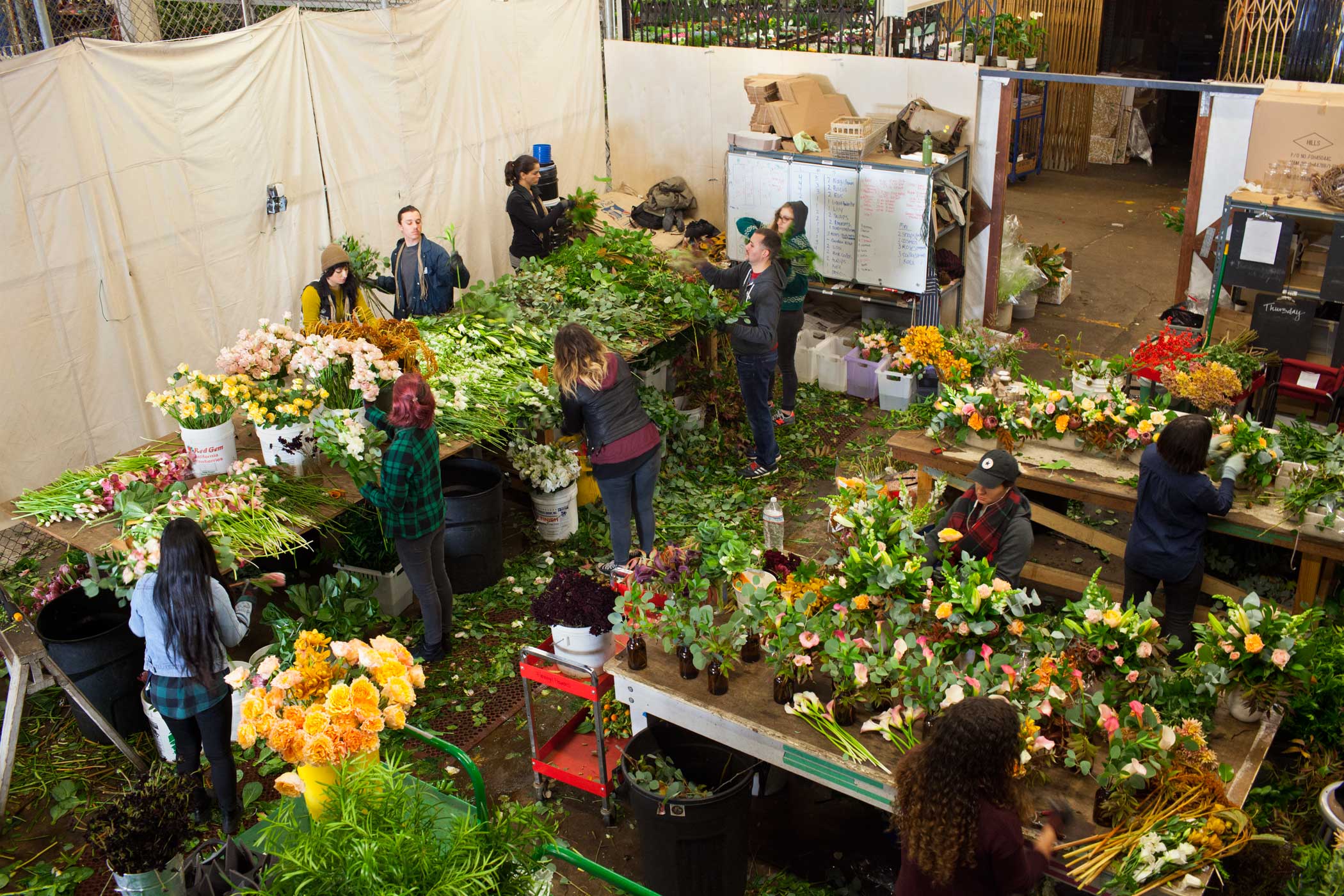
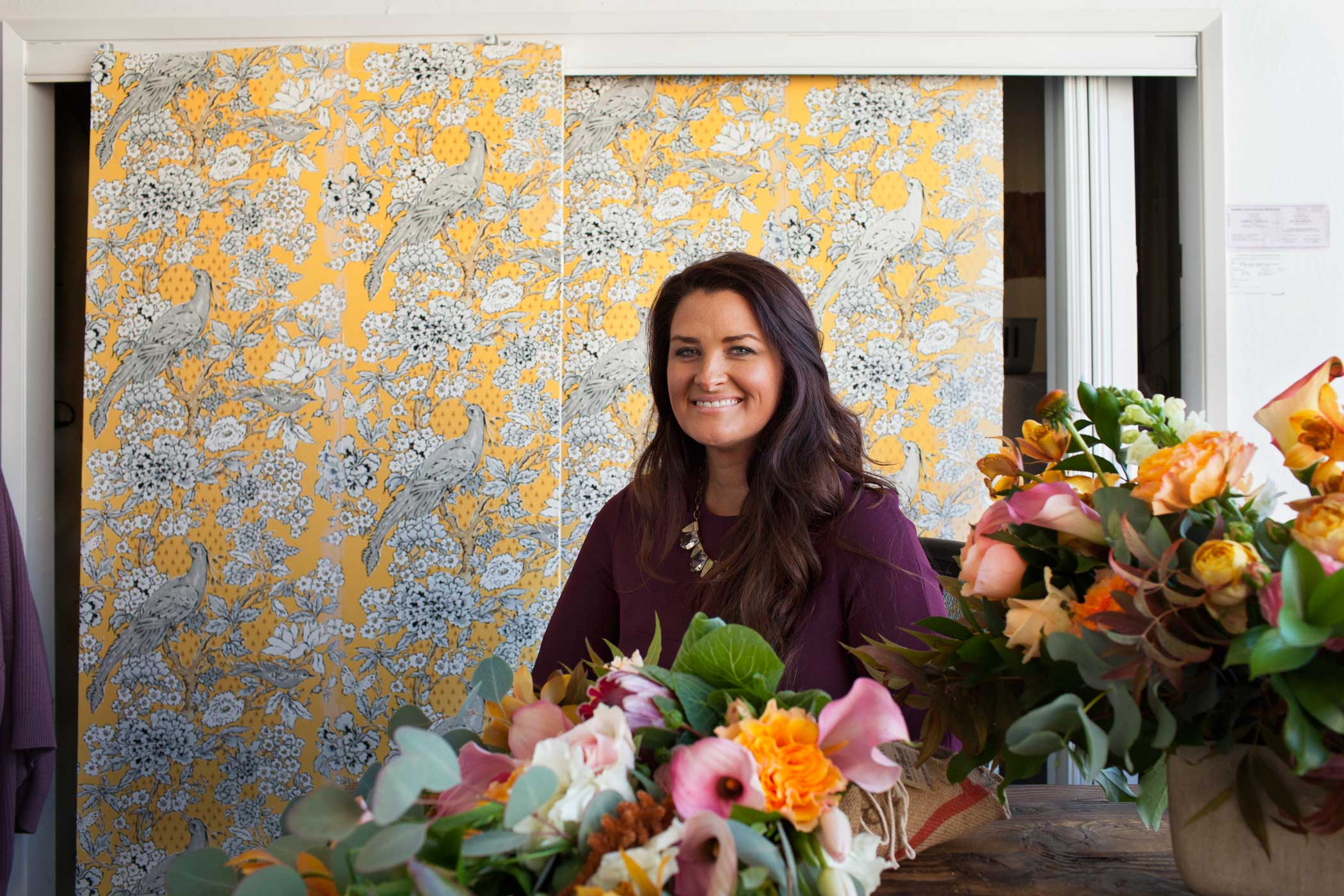
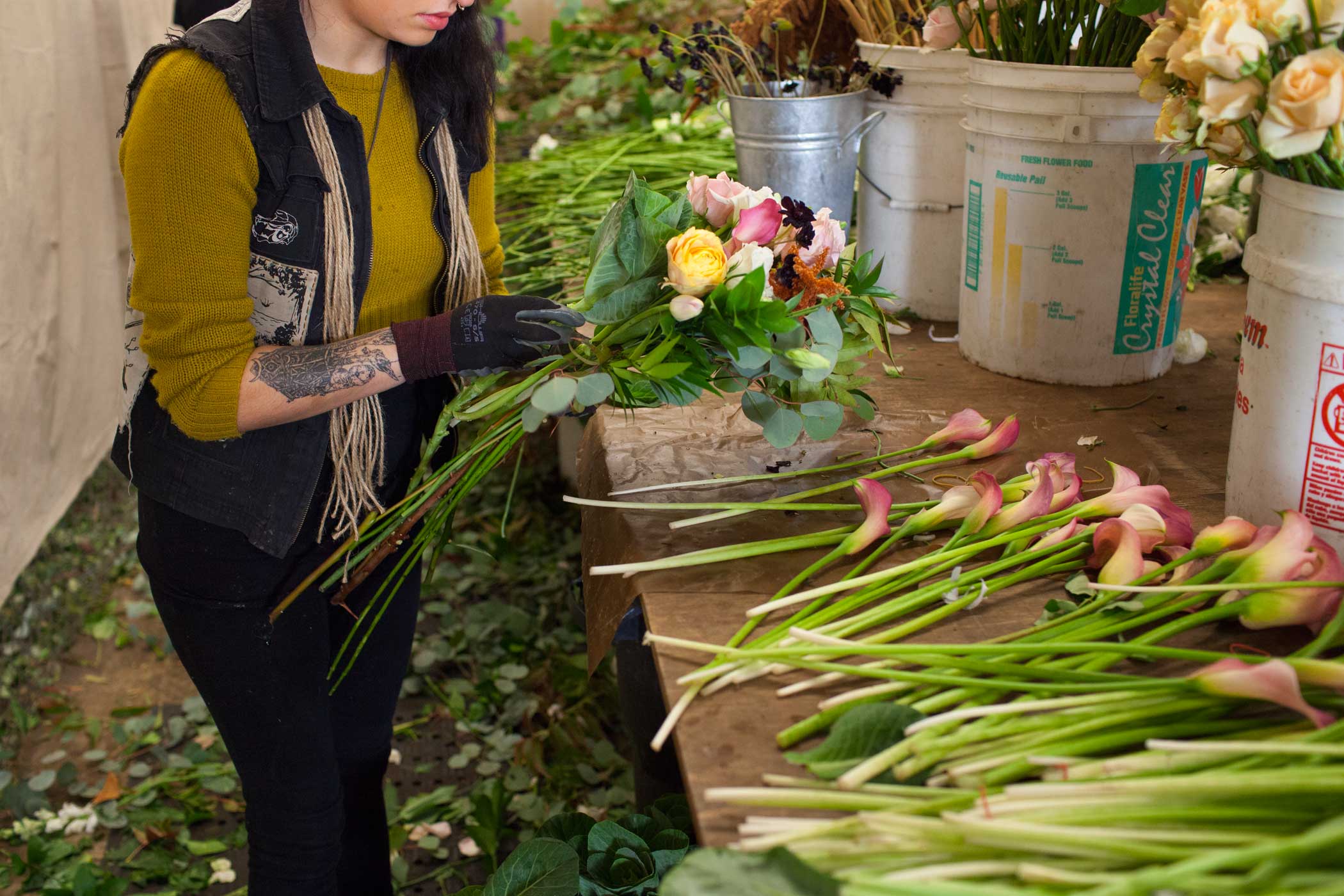
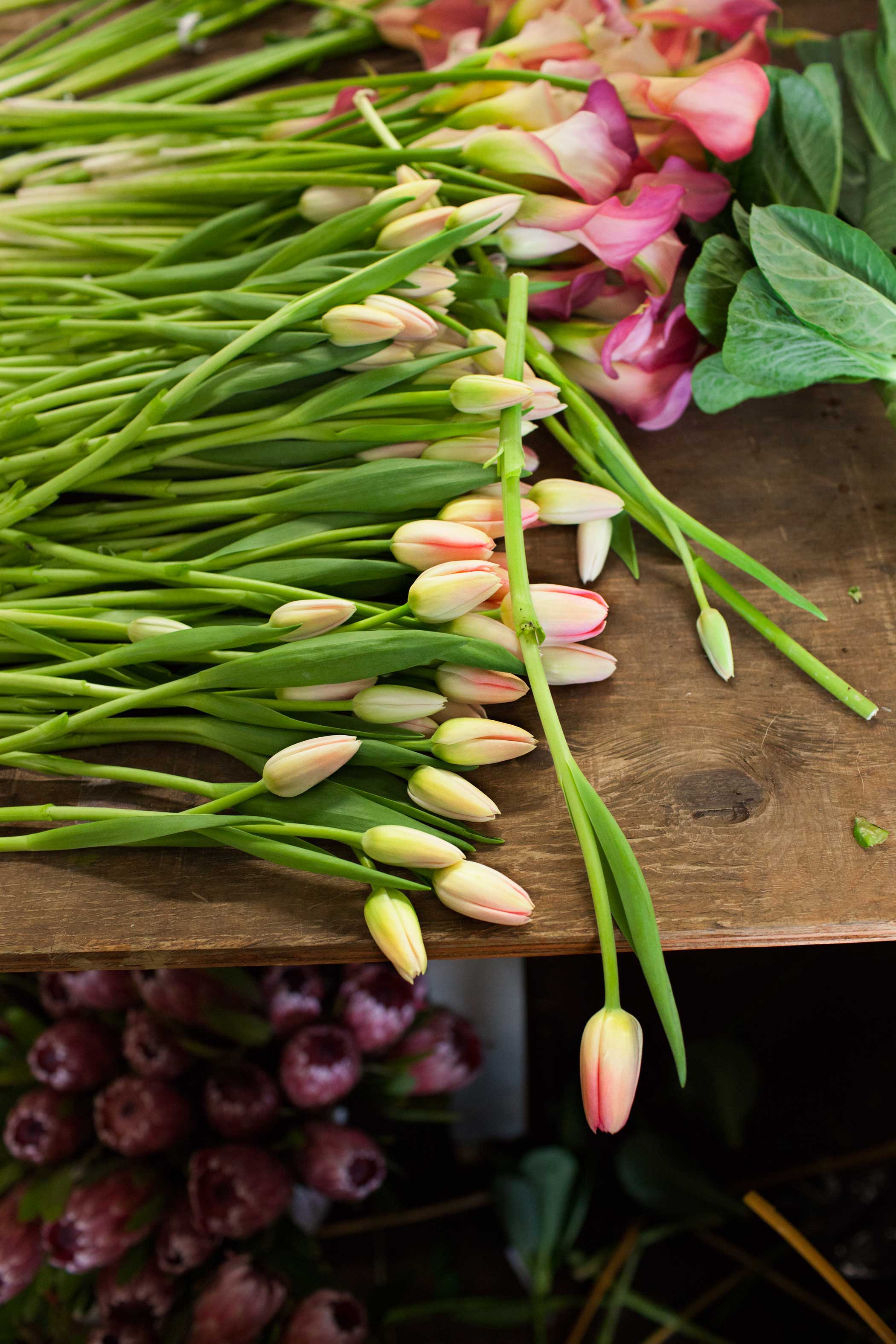
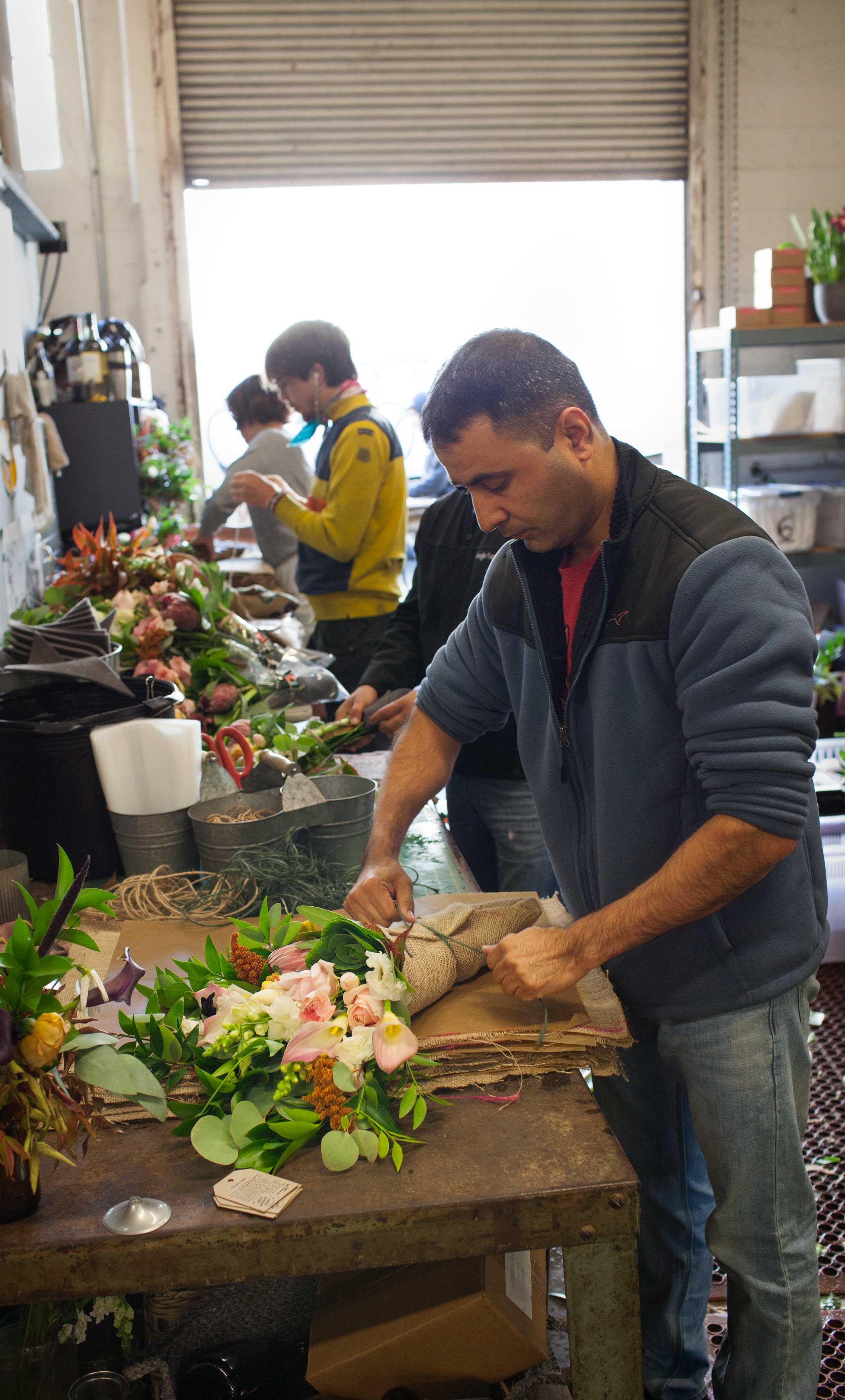
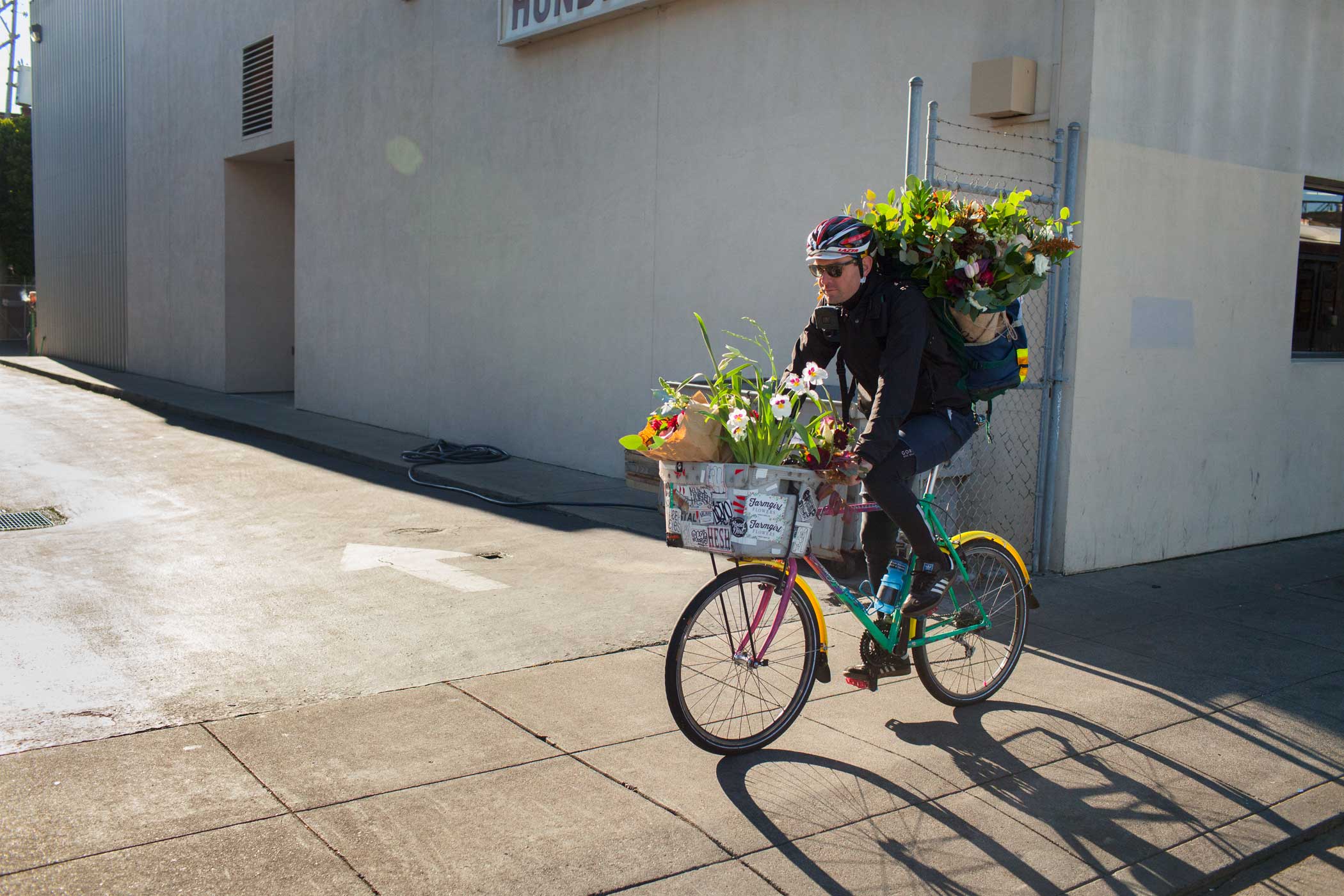
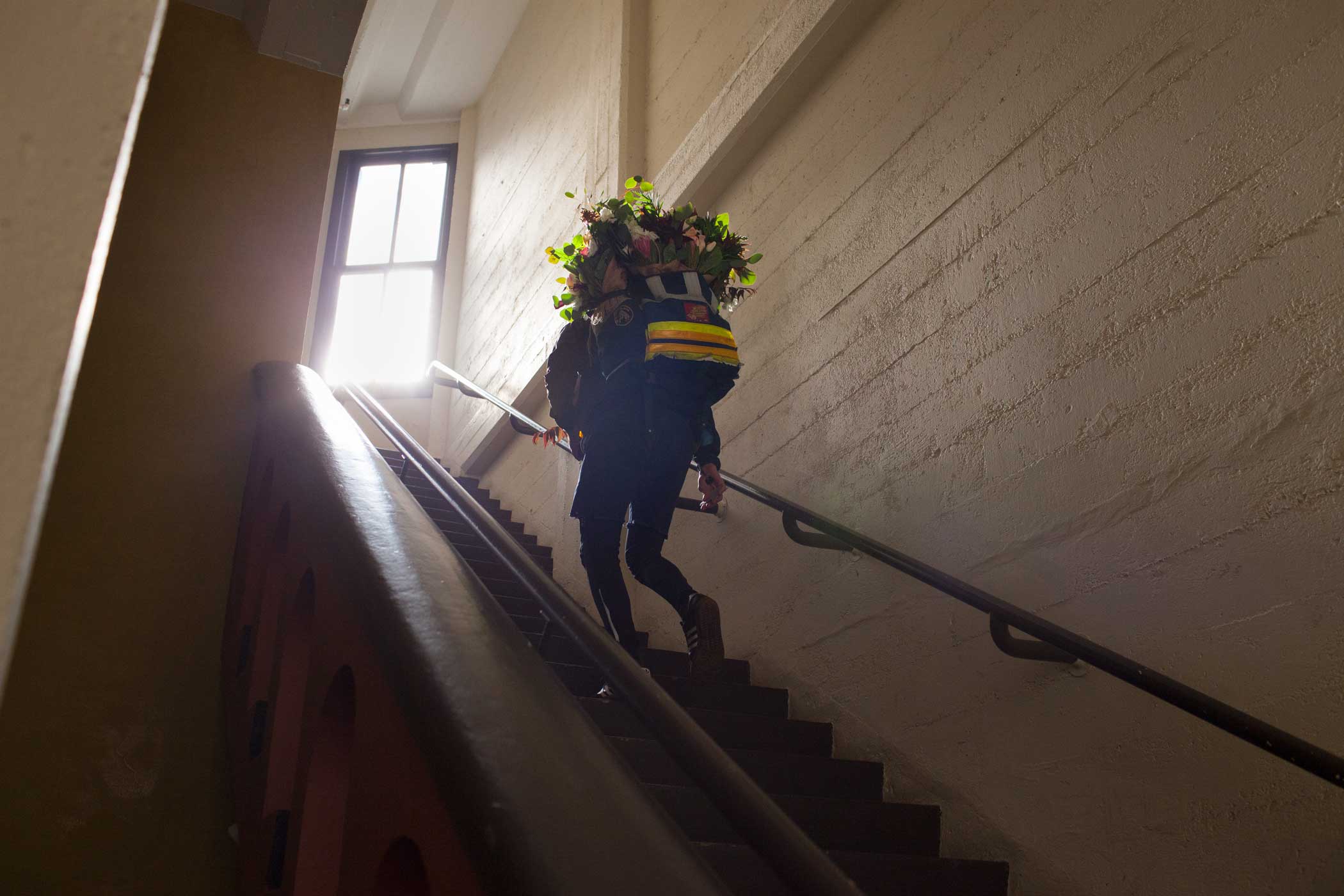
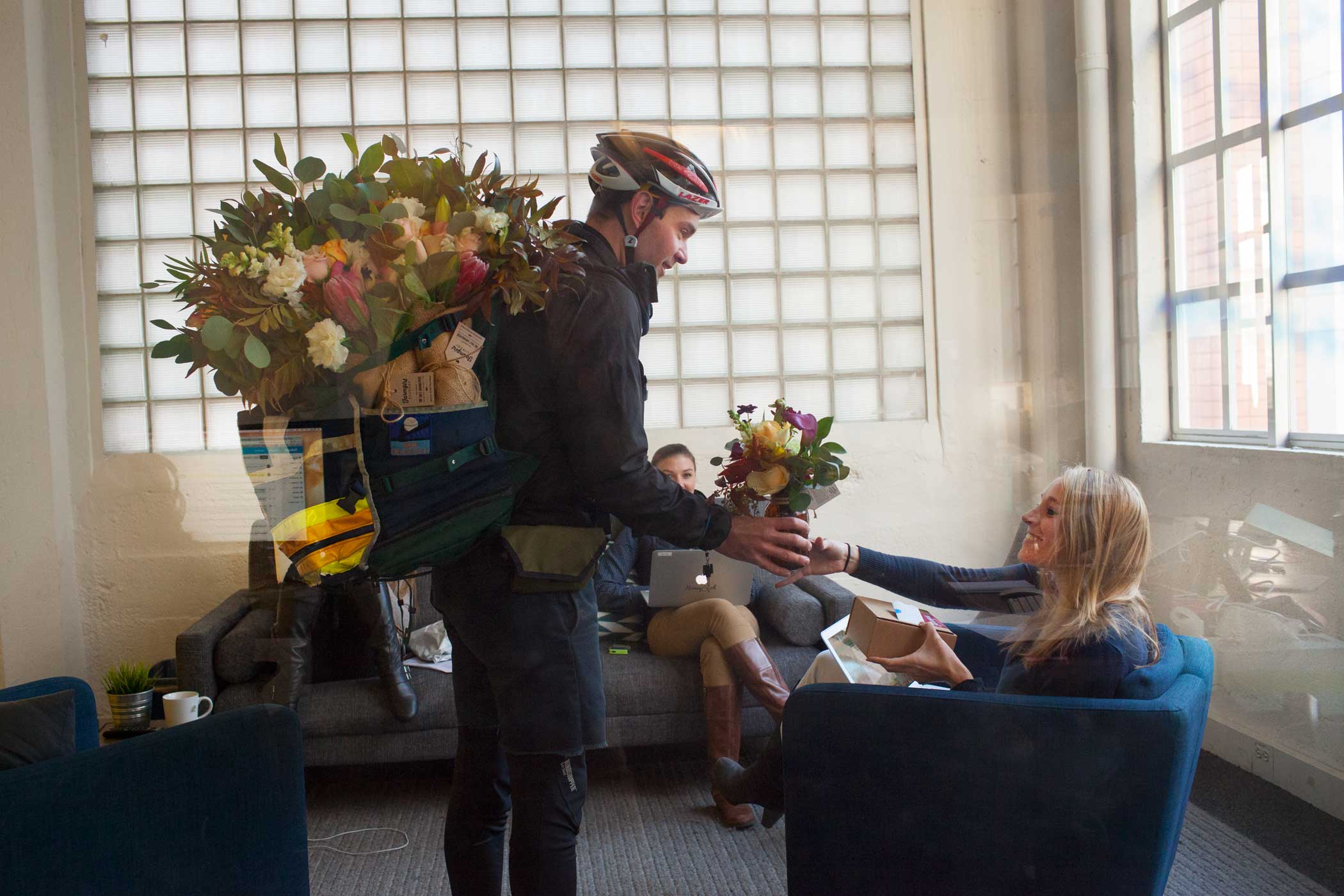
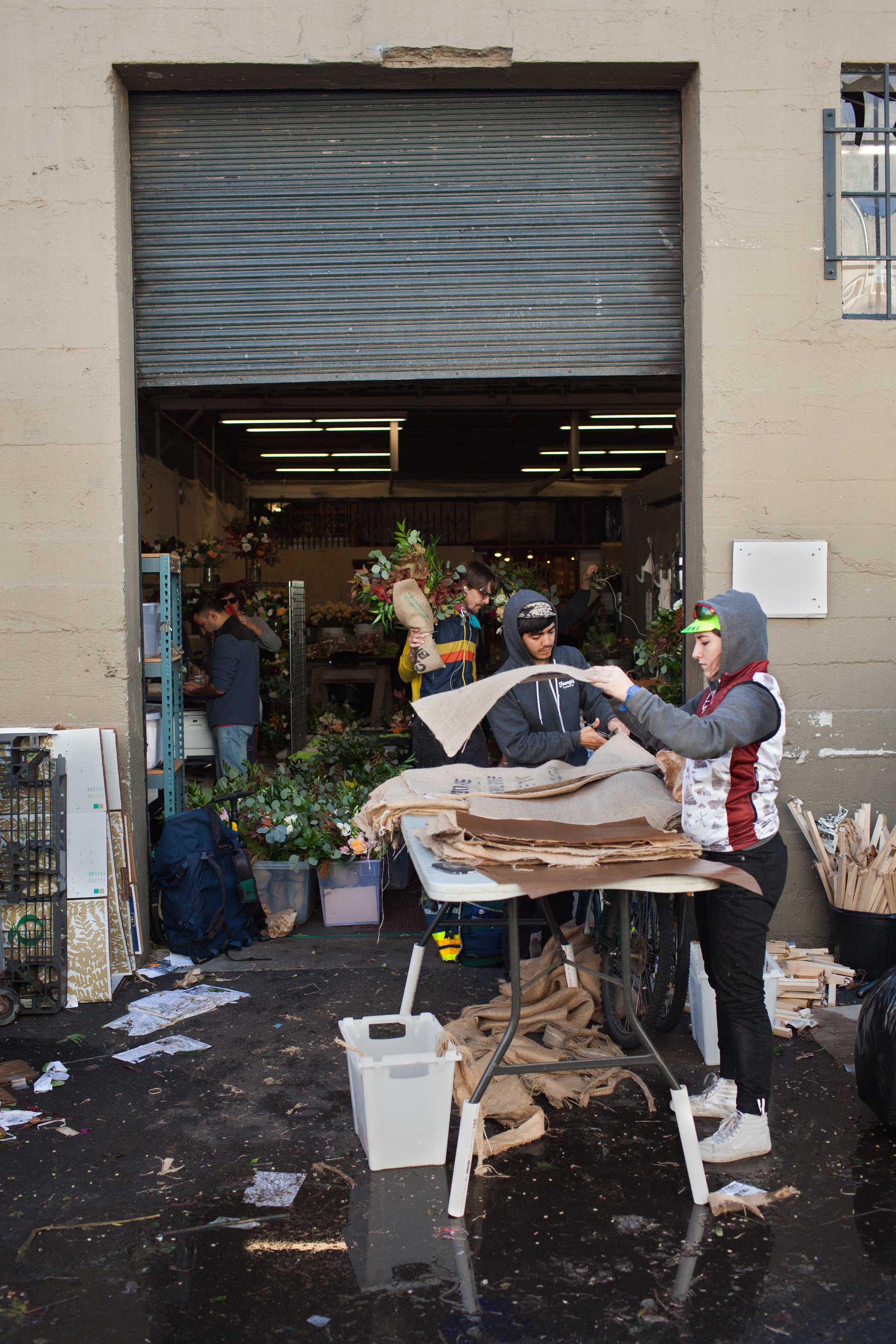
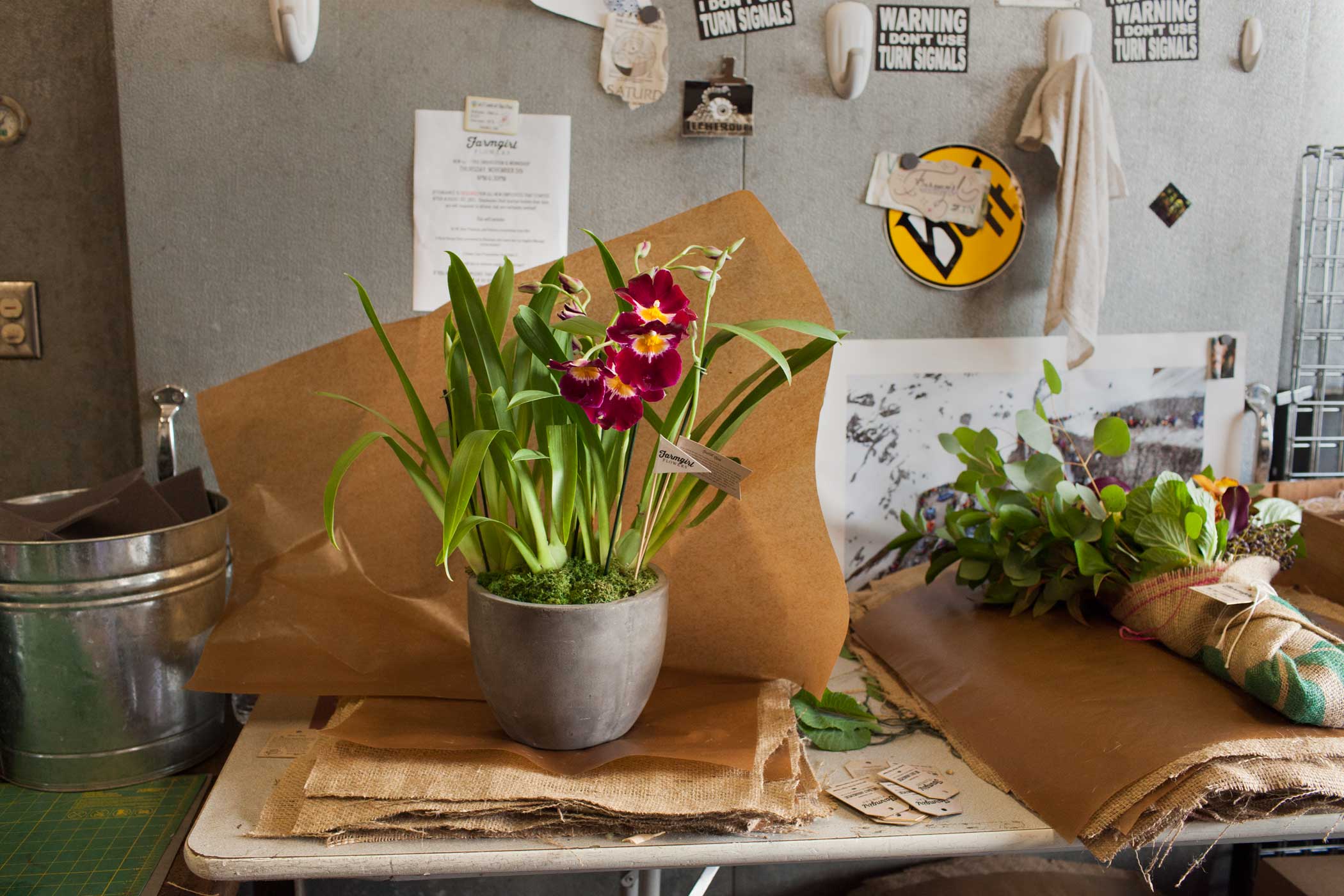
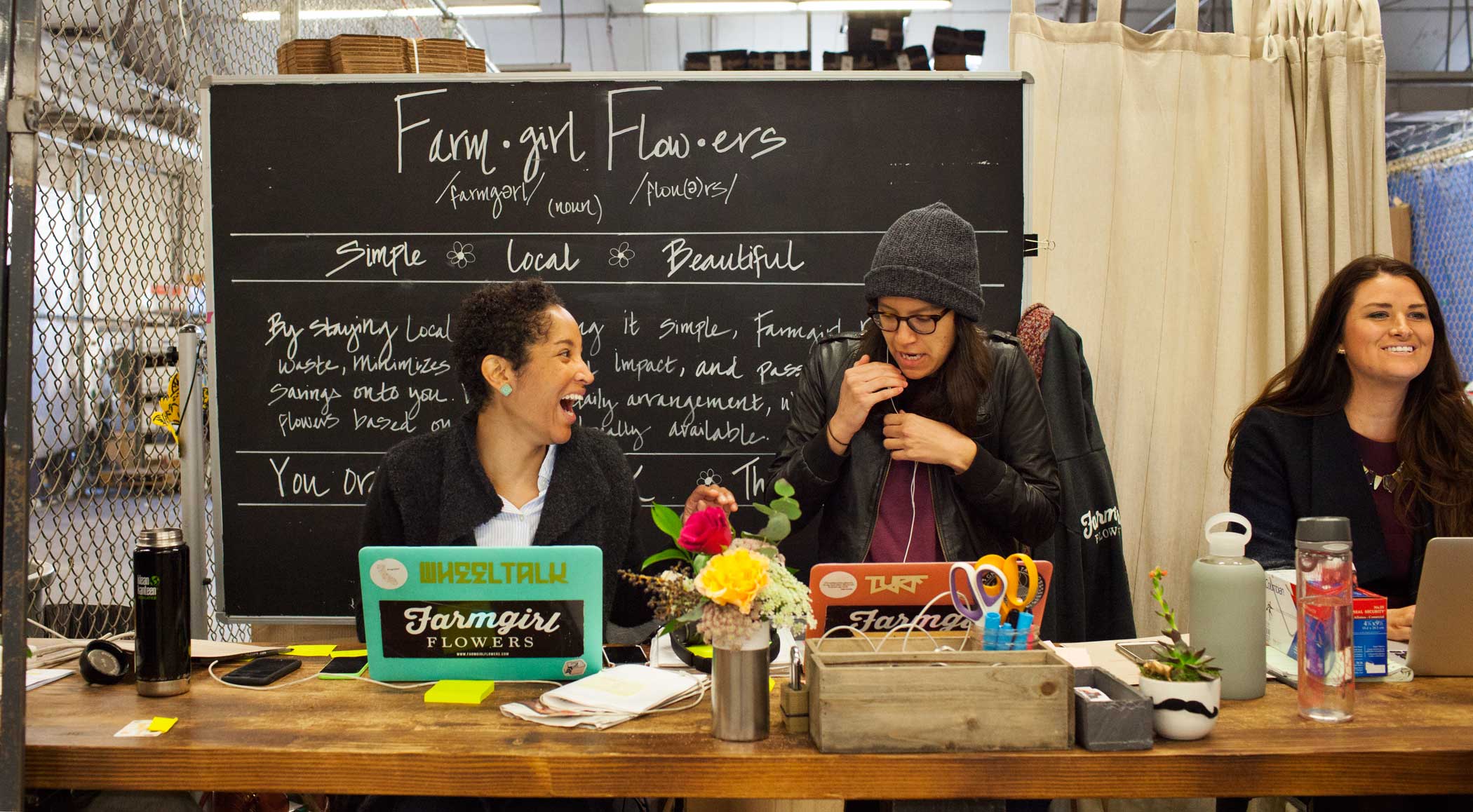
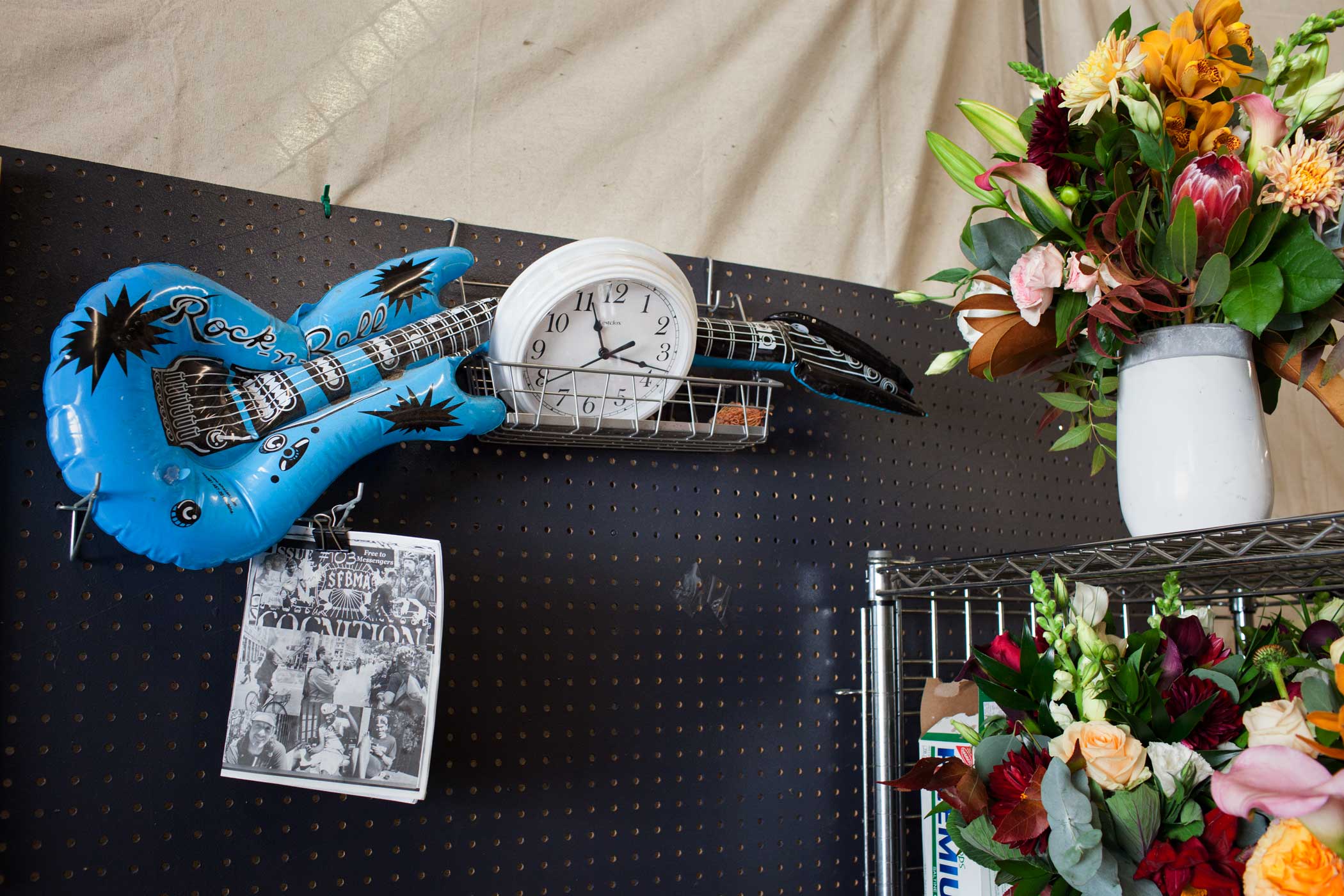
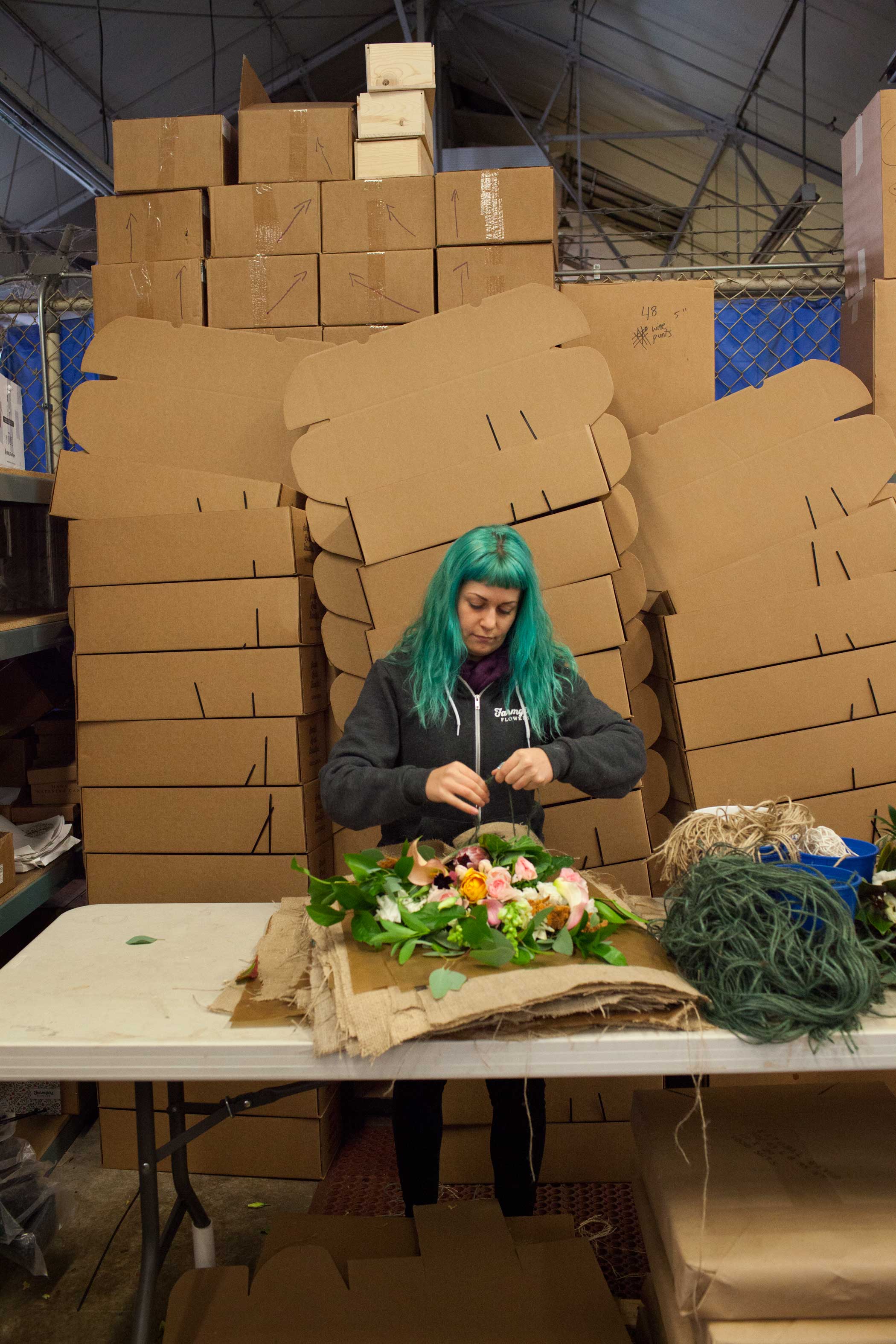
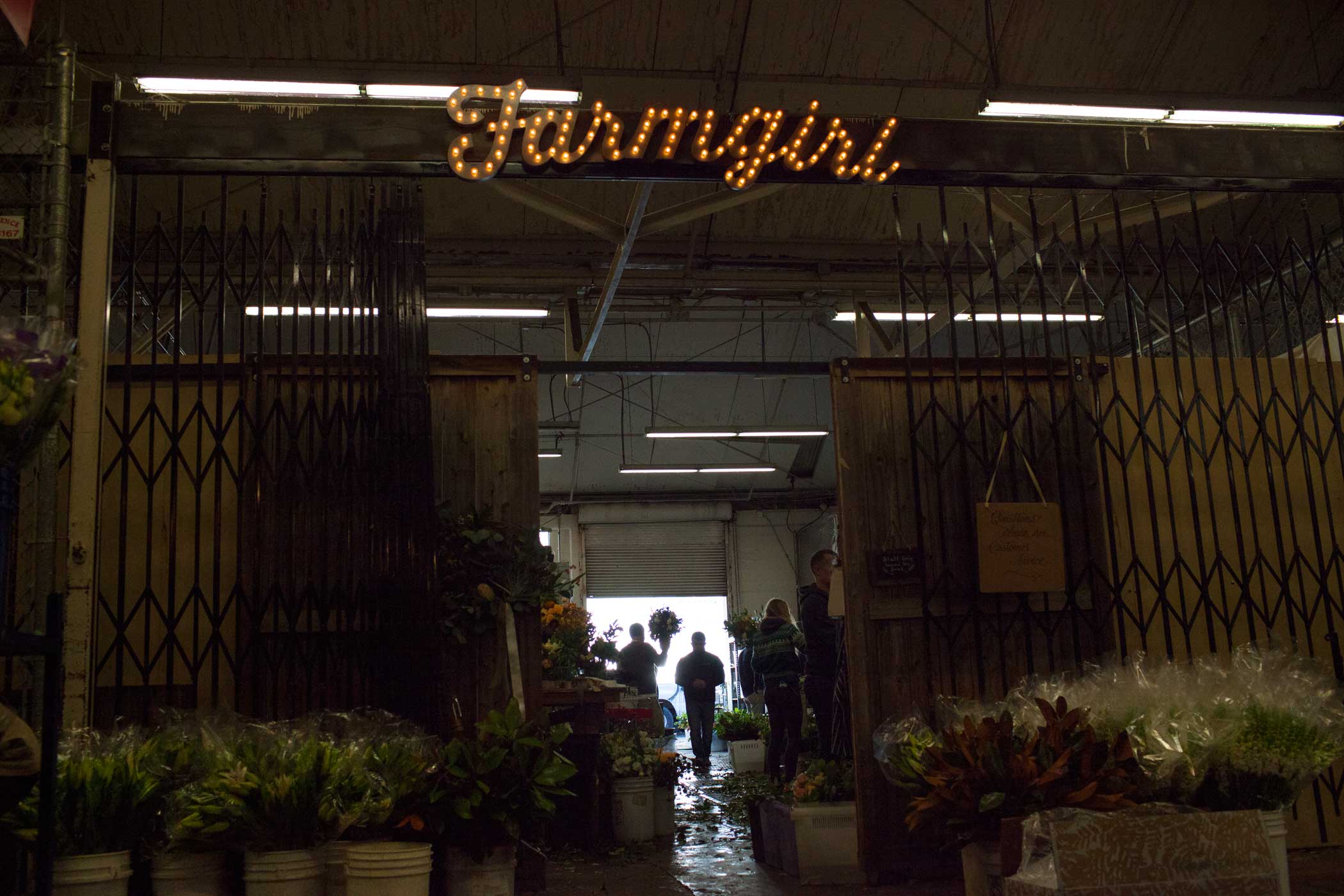
More Must-Reads From TIME
- The 100 Most Influential People of 2024
- The Revolution of Yulia Navalnaya
- 6 Compliments That Land Every Time
- Stop Looking for Your Forever Home
- If You're Dating Right Now , You're Brave: Column
- The AI That Could Heal a Divided Internet
- Fallout Is a Brilliant Model for the Future of Video Game Adaptations
- Want Weekly Recs on What to Watch, Read, and More? Sign Up for Worth Your Time
Contact us at letters@time.com